Easy Farsi Learning
فارسی بَرایِ بَچِه ها (و بُزُرگسالانِ آنها) : کی؟ چی؟ کُجا؟ (و یِک عِبارَتِ مُفیدِ فارسی)
Farsi bárāyeh bácheha (va bozorgsālān-eh-ānhā): kee? chee? kojā? (va yek ebāret-eh mofeed-eh Farsi)
If you purchase products or books I recommend from Bookshop.org after clicking on the links in this post, I might receive a commission of 10% of the purchase price. The commissions help fund the cost of hosting this website. I also link to other retailers that do not give me a commission. I only recommend items that I personally love. I always thoroughly research products and books before recommending to make sure they are high quality and relevant to my readers. Read more in my Privacy Policy and Disclosures.
Easy Farsi for Toddlers (And Their Grown Ups)

You don’t have to be fluent to teach your kids. You can learn together, little by little and phrase by phrase.
I used to think I needed to be fluent before my baby was born or there was no hope for teaching her Farsi. But I was wrong. Since having a baby, my Farsi learning has gained momentum so quickly it’s incredible. Here’s the secret: I’m learning *with* my child. So here’s my takeaway for you: You don’t have to be fluent to teach your kids. You can learn together, little by little and phrase by phrase.
I often joke with my family that I only know the most useless Farsi words (like “اَسبِ یِکشاخ | ásb-e-yekshākh,” unicorn). I’m learning alongside my toddler, so I’m learning what I call “toddler Farsi:” the easy Farsi words and phrases relevant to toddler life. Naturally, animals and their sounds top the list, but I also use “who?” “what?” and “where?” phrases many, many times a day.
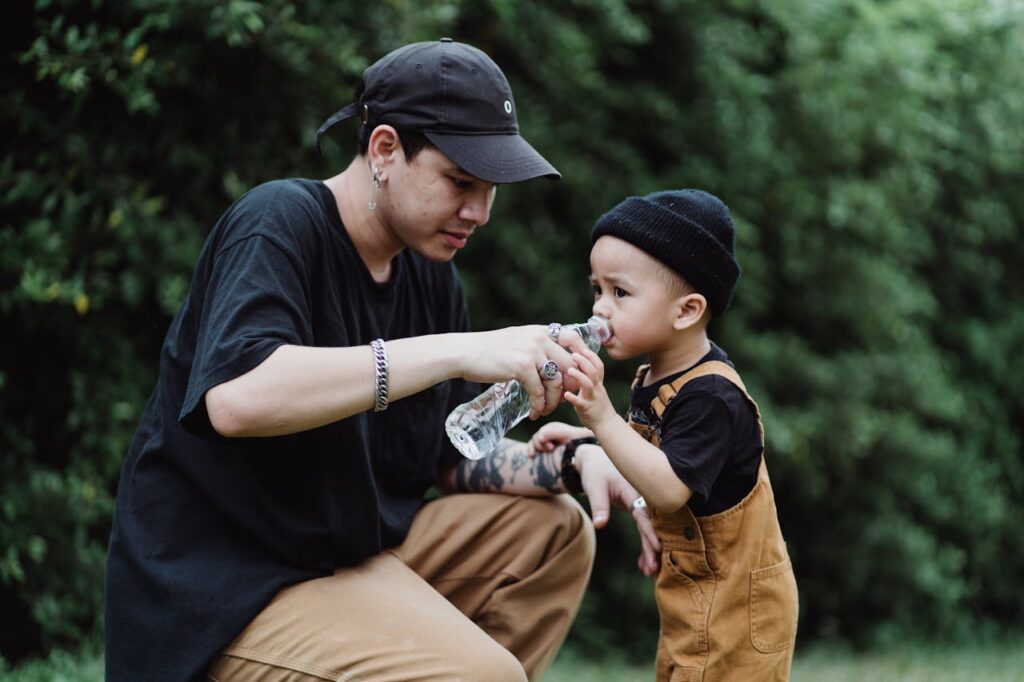
Every word or phrase learned is a step in the right direction.
Start by using single words and easy Farsi phrases, and try to replace them in everyday conversation. For example, instead of “water” say “āb” (آب) (which is arguably easier for a toddler to say anyway!). Even if you don’t know the whole phrase in Farsi (which is “āb meekhai” “آب میخوای” by the way), you can still say “Do you want āb?” in “Pinglish” as my family calls it (Persian-English hybrid). At the very least, there is a connection to the language, and a familiarity with how it sounds. Every word or phrase learned is a step in the right direction.
Sometimes adopting a goal that feels overwhelming to you (like becoming completely fluent before teaching your kids) can backfire and create a barrier to learning. So choose the goal that works for you and your family (fluency, introducing certain words and phrases, or something else), and rest assured that your choice is valid. If you need someone to remind you of that, hit me up and I’ll send you all the encouraging words. 🙂
Let’s learn some easy Farsi words and phrases you can start using today in everyday interactions with your family.
Let’s Learn: کی؟ چی؟ کُجا؟ (Who? What? Where?) Easy Farsi Phrases with Farsi Script, Transliterations, and Translations
In the charts below, I’ve only included the informal versions of these phrases, so there are few pronouns, and the informal pronouns are used instead of formal. I have also used the informal contractions (short versions) of the phrases. In formal Farsi, and especially in written Farsi, you would usually include the formal pronoun and full (not shortened) conjugated verb, and some of the words are pronounced and/or written differently.
All that to say, if you’re talking to an elder and you need to be extra respectful and formal, you probably don’t want to use these informal phrases! Check out this great lesson from Chai and Conversation for more info about the difference between the formal ‘shomā | شُما’ and the informal ‘to | تو.’
Farsi Phrases Charts
Vowel Pronunciation Guide
| Vowel | Transliteration | Sound |
|---|---|---|
| ا ,آ | ā | a in “all” |
| و | u | u in “rule” |
| َ (slanted line above) | á | a in “ran” |
| ِ (slanted line below) | e | e in “egg” |
| ُ (looped line above) | o | o in “oh” |
| ی, | ee | ee in “feel” |
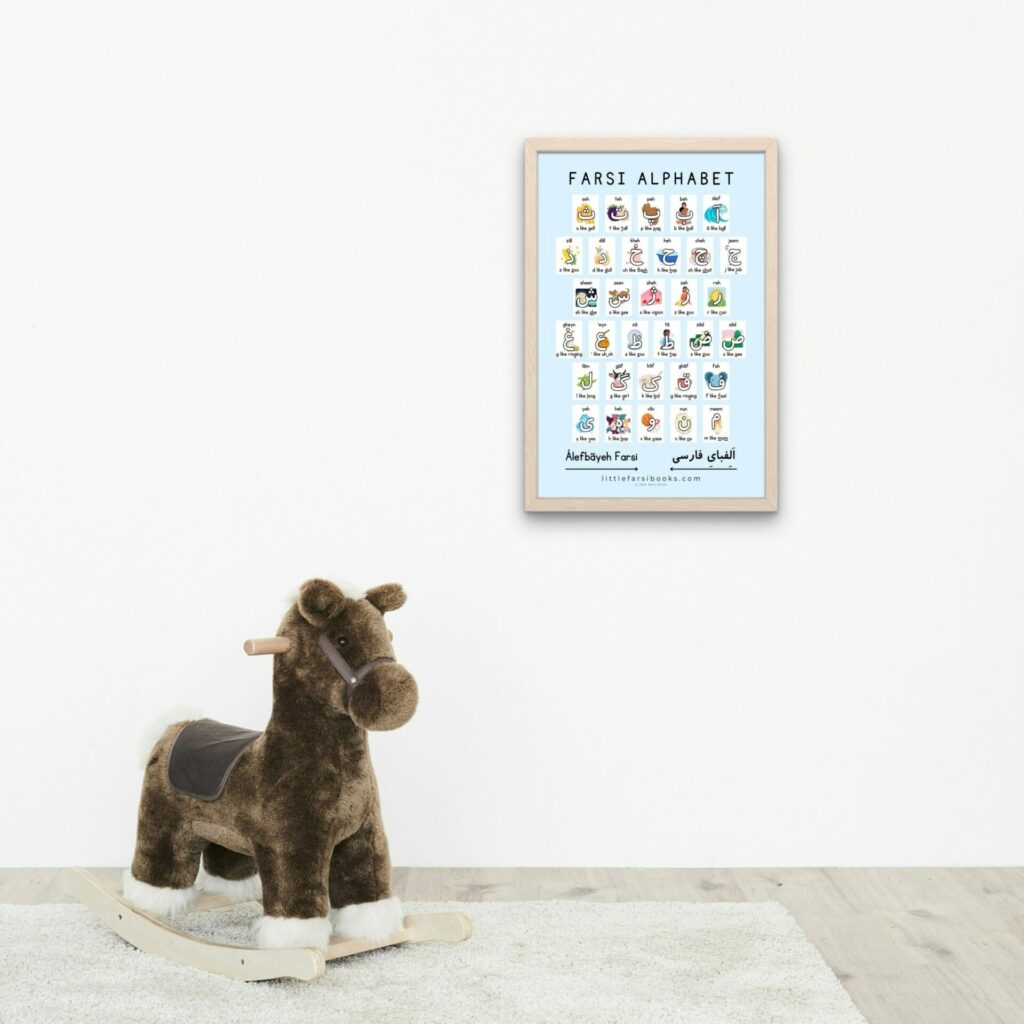
Free Download: Farsi Alphabet Poster (Alefbaye Farsi اَلِفبایِ فارسی)
کی | kee | who
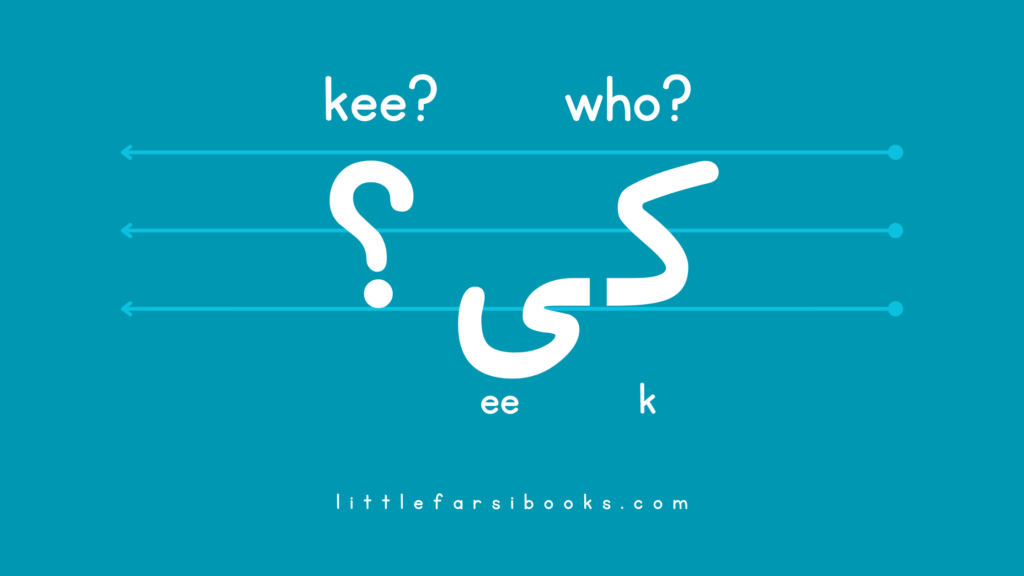
🔈 Listen: کی | kee | who
| Farsi | Transliteration | Translation |
|---|---|---|
| کی؟ | kee? | who? |
| کیِه؟ | keeyeh? | who is it? |
کُجا | kojā | where
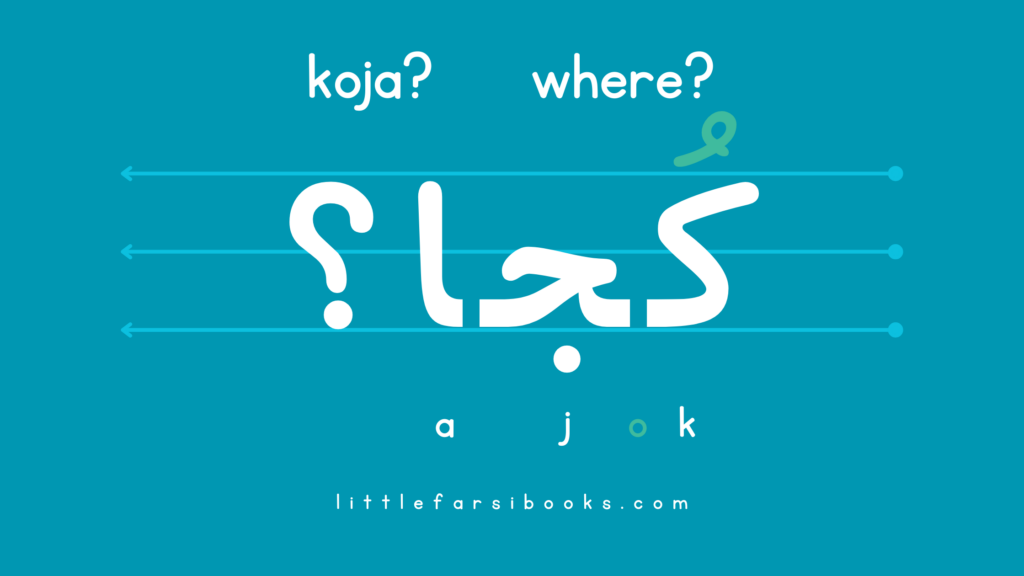
🔈Listen: کُجا | kojā | where
| Farsi | Transliteration | Translation |
|---|---|---|
| کُجا؟ | kojā? | where? |
| کو؟ … -or- کُجاست؟ … | … ku? -or- … kojāst? | where is …? |
چی | chee | what
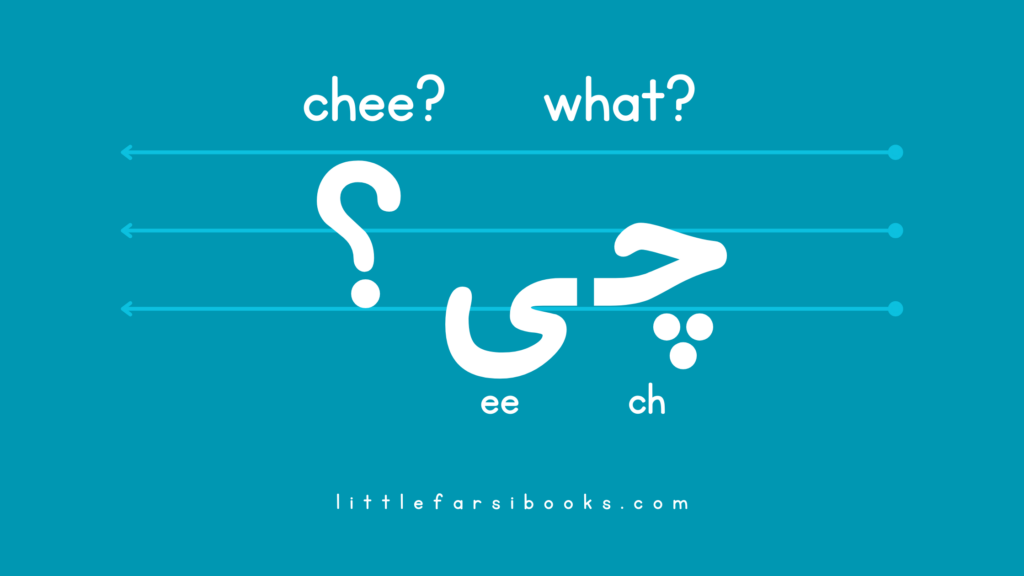
🔈Click to watch & listen: چیِه؟ | cheeyeh? | what is it?
🔈Listen: چی شُد؟ | chee shod? | what happened?
🔈 Click to watch & listen: چی میگِه؟ … | chee meegeh? | what does the … say?
🔈 Click to watch & listen: چی میگی؟ | chee meegee? | what are you saying?
🔈 Click to watch & listen: چی میوای؟ | chee meekhai? | what do you want?
| Farsi | Transliteration | Translation |
|---|---|---|
| چی؟ | chee? | what? |
| چیِه؟ | cheeyeh? | what is it? |
| چی شُد؟ | chee shod? (shod rhymes with road) | what happened? |
| چی میخوری؟ ▴ | chee meekhoree? * | what are you eating? |
| چی میگِه؟ … ▴ | … chee meegeh? | what does the … say? |
| چی میگی؟ ▴ | chee meegee? | what are you saying? |
| چی گُفتی؟ | chee goftee? (goftee sounds like goatee if you replace the ‘a’ with an ‘f’) | what did you say? |
| چی میخوای؟***▴◇ | chee meekhai? * (‘-ai‘ rhymes with eye) | what do you want? |
◇ the و is silent in this word, but in some regional dialects is pronounced like a ‘u’ or ‘w’
▴ the most correct way to write the prefix “mee | می” in these words is to keep it disconnected from the base verb but with no space in between. It is a little outdated to connect them, as I have, but it is what I see more commonly in informal text exchanges. In books, formal reports, etc, you will usually find it disconnected but with no space in between.
Bonus Farsi Phrase
| Farsi | Transliteration | Translation |
|---|---|---|
| میخوای؟ … ◇ ▴ | … meekhai? * | do you want… ? |
◇ the و is silent in this word, but in some regional dialects is pronounced like a ‘u’ or ‘w’
▴ the most correct way to write the prefix “mee | می” in these words is to keep it disconnected from the base verb but with no space in between. It is a little outdated to connect them, as I have, but it is what I see more commonly in informal text exchanges. In books, formal reports, etc, you will usually find it disconnected but with no space in between.
What Farsi phrases do you think are most useful for parents and families to learn?
I hope these phrases help you bring Farsi into your family life! What phrases or words do you think parents and families would find useful? Send me an email (maia@littlefarsibooks.com) or contact me with this form!
